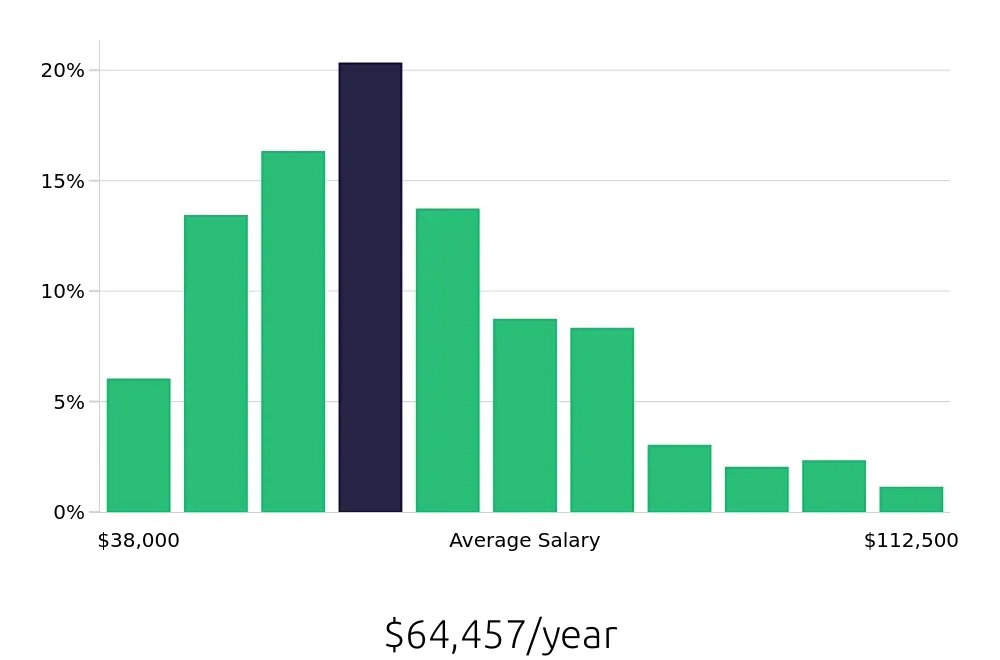Position
Overview
A Heating, Ventilation, Air Conditioning (HVAC) Technician installs, maintains, and repairs heating, cooling, and air quality systems. This job requires a deep understanding of both mechanical systems and electrical circuits. Technicians use specialized tools to diagnose problems, repair faulty parts, and ensure systems work efficiently. They may work in homes, offices, or factories, ensuring comfort and safety for the people inside.
The role involves a mix of physical work and technical skills. Technicians often lift heavy equipment and climb ladders. They must read blueprints and technical manuals to understand system designs. Effective communication is key, as they need to explain repairs and maintenance plans to clients. With demand for energy-efficient systems growing, HVAC Technicians also focus on installing eco-friendly technologies. This position offers a chance to make a real impact on people’s daily lives while using a wide range of skills.
Becoming a Heating, Ventilation, Air Conditioning (HVAC) Technician involves a structured path. This rewarding career can start with a few key steps. Employers look for candidates who have completed these steps and are ready to work.
First, one must obtain a high school diploma or GED. This provides a basic educational foundation. Next, training in HVAC systems is crucial. This training can come from a trade school, community college, or apprenticeship. Each option offers hands-on experience and classroom instruction.
Learning to become a Heating, Ventilation, and Air Conditioning (HVAC) Technician involves several steps. The time it takes can vary based on your background and the path you choose. Many start with a high school diploma and a vocational program. These programs usually last one to two years.
After completing a vocational program, some technicians gain experience through an apprenticeship. An apprenticeship can last from two to five years. During this time, they learn by working under experienced technicians. Some may choose to continue their education with a formal degree program. These programs can last two to four years. Completing a degree can open more job opportunities and higher pay.
We are seeking a skilled Heating, Ventilation, and Air Conditioning (HVAC) Technician to join our team. The ideal candidate will be responsible for installing, maintaining, and repairing HVAC systems and equipment in residential, commercial, and industrial settings.
Responsibilities:
Qualifications
Choosing a career as a Heating, Ventilation, Air Conditioning Technician can lead to a rewarding job that keeps communities comfortable. Technicians, or HVAC techs, work in residential, commercial, and industrial settings. They install, maintain, and repair HVAC systems. This profession requires specialized skills, which many employers value highly.
The HVAC industry offers stable job opportunities. HVAC techs meet a high demand because every building needs climate control. Technicians often enjoy good pay and benefits. This career provides the chance to work independently or for a company. However, it requires physical labor and can involve long hours. Technicians may also face dangerous working conditions.
Below is a list of pros and cons to consider:
Interested in a stable career with steady demand? Consider becoming a Heating, Ventilation, and Air Conditioning (HVAC) Technician. The Bureau of Labor Statistics (BLS) reports an average of 37,700 job openings annually. This consistent demand ensures job security and a promising outlook for those seeking a reliable career path.
With a projected 5.5% job openings increase from 2022 to 2032, the HVAC industry is set to grow. This growth suggests a robust environment for new and experienced technicians alike. The demand for skilled professionals highlights a favorable job outlook, providing ample opportunities for career advancement and stability.
HVAC Technicians can also look forward to competitive compensation. The BLS data shows an average national annual salary of $59,620. On an hourly basis, technicians earn around $28.66. These figures reflect the value placed on skilled professionals in this essential field, offering both financial stability and career satisfaction.
